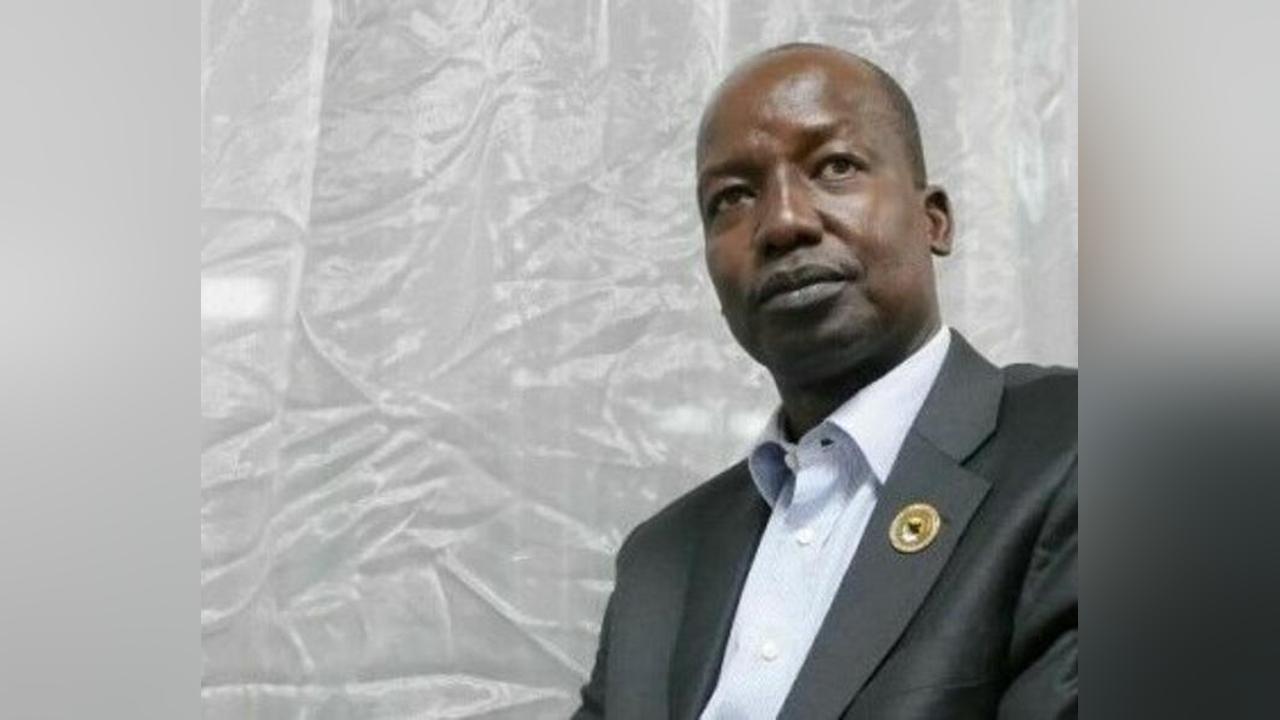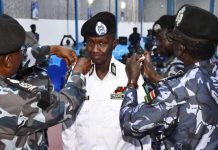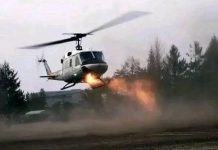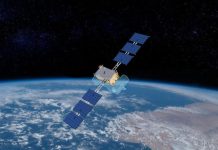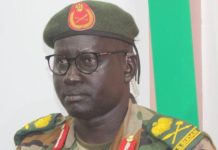Africa-Press – South-Sudan. In this continuation of Radio Tamazuj’s exclusive interview with General Thomas Cirillo, the leader of the National Salvation Front (NAS) discusses the complexities of peace negotiations and the struggles facing South Sudan.
Addressing allegations, political flexibility, and the current state of peace talks in the final part of the interview, General Thomas Cirillo provides a candid perspective on the challenges and hopes for South Sudan’s future.
Below are edited excerpts:
Question: Gen. Thomas, some observers have said you lack flexibility in your political and negotiation positions. Don’t you think that flexibility can help achieve peace in South Sudan?
Answer: First of all, I want to tell the South Sudanese people that politics during a democratic and peaceful period is different from politics during a struggle. Our citizens want to be liberated from injustices, oppression, killings, and genocide.
Secondly, I have heard this kind of statement during the Khartoum peace talks. Some politicians and observers want us to surrender to Salva Kiir’s government in Juba—a government that is destroying, killing, dividing South Sudanese along ethnic lines, and looting their natural resources. This situation is well known globally. We are surprised to hear such statements from some politicians and observers suggesting our people should surrender to such a system.
We believe the current struggle in South Sudan is a matter of life and death for our citizens. This is not a situation where we can surrender. How can you surrender to a system that loots the country’s natural resources just for the sake of flexibility?
If political flexibility means surrendering to Salva Kiir’s system, I would rather leave politics. I don’t want to betray my people. This is not the time for political flexibility; that can only happen during a period of democracy and peace.
Practicing politics during a struggle to save and liberate the people involves different mechanisms. So if people want us to be flexible and surrender just to be called flexible politicians, we reject that idea.
Q: South Sudan has experienced a long period of war, and people need peace. While regional and international friends have been pushing for peace, why don’t you sign an agreement and work from within to change the government?
A: First, I want to acknowledge the regional and international efforts to bring democracy and peace to South Sudan. We have practical examples like the R-ARCSS agreement. We rejected that agreement because we felt it would give Salva Kiir more chances to stay in power and continue to oppress South Sudanese.
I met some opposition leaders during the talks in Rome, and some suggested signing the agreement so we could all go back to Juba. I told them I am not content with this agreement because it will not serve the interests of our citizens or the country. But if they are convinced and want to go back to Juba, they should go ahead and implement the agreement.
If they fully implement the agreement and there is total peace, democracy, and equality among citizens, allowing them to freely express their basic rights and choose their leaders and system of governance, we will return to Juba as normal citizens. And if we want to practice politics, we will do so like anyone else.
Look at the situation of those who signed the agreement with the government and went to Juba. Look at Riek Machar; what is happening to them? They are in Juba as if they are in prison.
Salva Kiir’s government focuses on destroying the unity of the opposition, killing some of them, and there is nothing good happening there. Salva Kiir uses the natural resources of South Sudan to buy the loyalty of some opposition leaders and divide them along ethnic lines. Now some of them are living in Juba as prisoners. What kind of agreement would people want us to go back to Juba to implement with Salva Kiir? This is nonsense.
We believe that if Salva Kiir’s government is serious about bringing lasting peace to South Sudan, they must engage in talks with us in a neutral zone like Rome. This way, we can discuss the root causes of the conflict at a roundtable conference and find a solution.
Q: The recent report by the peace monitoring body in South Sudan mentioned that NAS has been carrying out attacks in parts of Equatoria, such as Mundri. How do you respond to these allegations?
A: That is not true. What has actually happened is that government forces have carried out attacks on our positions, including in Mundri. Our forces had to defend themselves.
Additionally, government forces have burned civilians’ houses, killed civilians, and raped women. After we confronted and defeated them in many battles, they resorted to burning down civilian homes and chasing people out of their areas, especially in territories under our control.
There are reports from some organizations that went to Rokon and witnessed what happened there. Our field commander in the area is now protecting civilians and providing them with shelter.
So, the report accusing us of carrying out human rights violations against civilians is false. It is an attempt to implicate us unfairly.
Q: Some SSOMA groups are engaged with the government in the Kenya talks, and NAS is not part of the ongoing talks. Does this mean we are seeing a division among SSOMA again?
A: The disagreement is over the venue of the talks. We prefer to focus on Rome, while other members, such as Pagan Amum and Paul Malong, decided to go to Kenya and agreed to have Nairobi as the venue. This is the only disagreement we have. So, they are now representing their own organizations. SSOMA comprises the National Salvation Front, the National Democratic Alliance (NDM), and the South Sudan National Movement for Change (SSNMC).
Q: So, are they now out of SSOMA? Is that what you are saying?
A: We believe that their presence in Nairobi represents their organizations, but not SSOMA.
Q: There is another group using the NAS name that is now part of the Kenya talks. Do you know them, and are they part of your movement?
A: They were our military officers and were part of NAS. However, they disappeared from our training centers three years ago and have been staying in refugee camps in neighboring countries. They have been recruited by the government.
Just as it happened in Khartoum when the government felt NAS would not sign the peace agreement, the former Sudanese president Omer Al Bashir’s government recruited some of our members to sign on our behalf. This is exactly what is happening in Kenya.
When the government realized we would not participate in the Nairobi talks, they started recruiting these individuals—no more than 10 people—and claimed they were NAS representatives.
This is not new. I want to tell our supporters across South Sudan not to be surprised. Even during the Anyanya I period and the SPLM-A movement, similar situations occurred. Autocratic governments use such tactics to weaken struggle movements.
We suspended these individuals from NAS when we realized they were being recruited by the government. This is a conspiracy against NAS. I spoke to the Chief Mediator for the Nairobi Peace talks, Maj. Gen. (Rtd) Lazarus Sumbeiywo before their meeting in Nairobi, and I said if they think they can pick anyone from the street to represent NAS, that will be their issue.
The current situation in South Sudan doesn’t need such politics. We need all South Sudanese to engage in serious dialogue to address the root causes of the conflict and bring about lasting peace. Cheating politics will not take us anywhere. If we don’t save South Sudan now through genuine talks in a neutral place, we are heading towards a collapsed state.
Q: What is your message to Pagan Amum and Paul Malong, who are now in the talks in Nairobi?
A: I wish them all the best and I hope their negotiations achieve lasting peace for South Sudan.
Q: Since you left the country in 2017, have you been in contact with President Kiir?
A: I have not tried to speak to him up to this moment.
Q: If you had a chance to meet President Kiir, what message would you convey to him?
A: I would tell him that he has destroyed South Sudan, a beautiful country with brilliant people. He has divided and killed its people, looted their natural resources, and left them as slaves. He should leave the fate of this country to its people to decide for their future generations. At this juncture, Kiir will not provide anything good for South Sudan; instead, he will continue to destroy it further.
Q: What is your final message to the people of South Sudan?
A: Our people should not be deceived by what is going on in Nairobi. The so-called peace negotiations there in Nairobi is just a platform created by the government to convince opposition parties to accept the 2018 agreement. It is also a forum to allow Salva Kiir’s government to continue oppressing the rights of the people of South Sudan.
This is a deceptive forum because the government knows our people are tired and desperate for peace by any means. That’s why the government in Juba is using this opportunity to deceive our people through other opposition parties, allowing Kiir to continue destroying the country.
I urge our people to recognize this crucial moment in our history, which requires us to unite under the objective of our struggle movement to find peace and move South Sudan forward with development and prosperity.
I also assure our people that NAS and other SSOMA organizations will stand with them. We will not betray them. We will continue the struggle until we liberate our people from this oppressive government.
Source: Radio Tamazuj
For More News And Analysis About South-Sudan Follow Africa-Press

